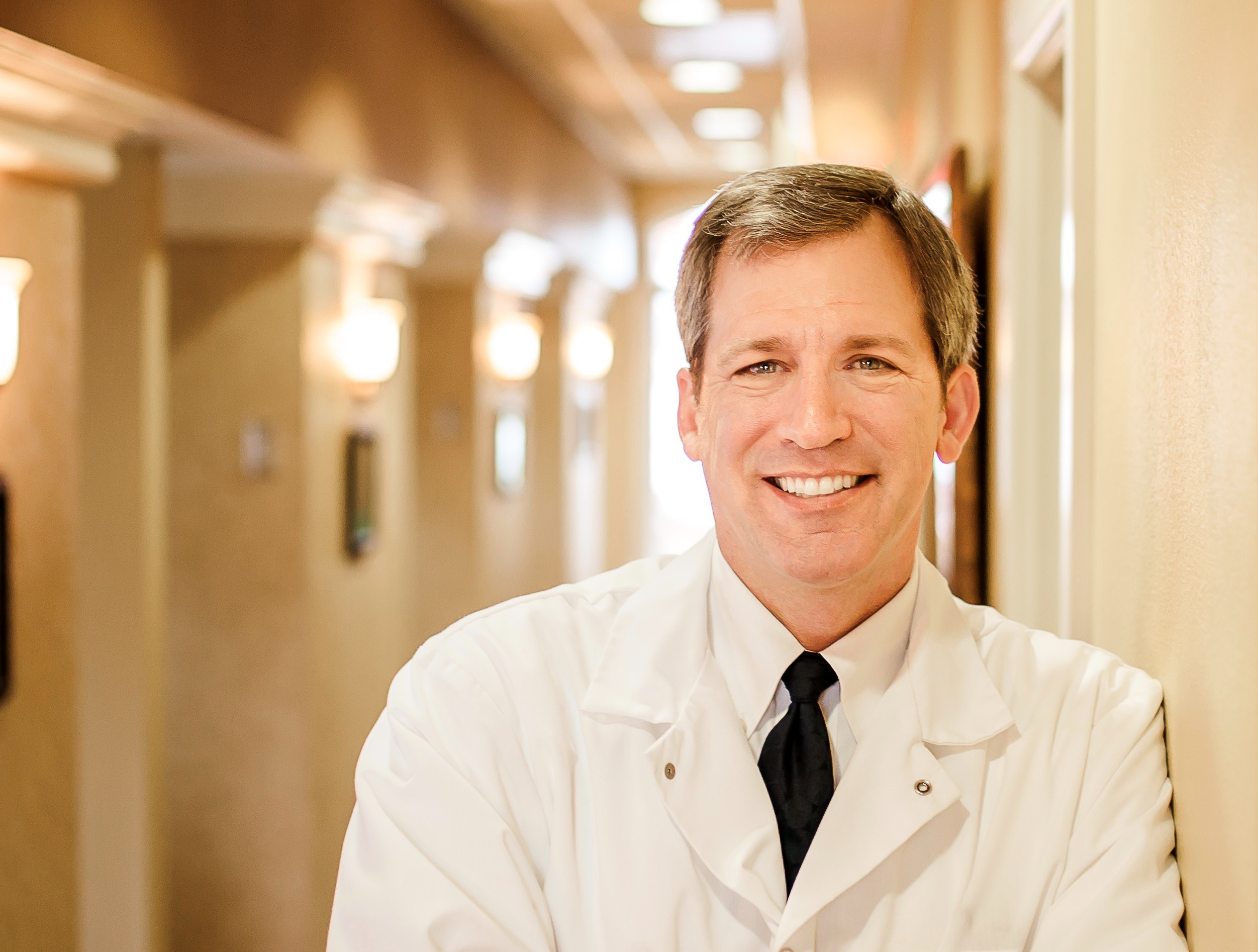Vail Ski & Dental CE
Vail, Colorado
January 26 - January 30, 2026
Surgical-Orthodontic Course Schedule
Monday, January 26, 2026
Orthodontic Management of Complex and Syndromic Patients
Dr. Lina Moreno and Dr. Marcela Hernández
Managing patients with complex dental anomalies and craniofacial syndromes presents unique challenges that require interdisciplinary collaboration, advanced, planning, and creative biomechanical strategies. This presentation will explore contemporary orthodontic approaches to treating patients with missing or supernumerary teeth, dental transpositions, and atypical tooth substitutions. Special emphasis will be placed on managing severe skeletal discrepancies, including Class III malocclusions requiring distraction osteogenesis, and the comprehensive treatment planning of patients with craniofacial syndromes. Through clinical cases and evidence-based strategies, attendees will gain insights into optimizing outcomes for this demanding patient population.
Learning Objectives:
At the end of this course, participants will have the ability to:
- Identify and apply orthodontic techniques for managing patients with:
- Congenitally missing or supernumerary teeth
- Dental transpositions
- Canine-to-lateral and premolar-to-lateral substitutions
- Discuss treatment strategies for severe skeletal Class III malocclusions, including the use of distraction osteogenesis
- Develop a systematic approach to treatment planning and interdisciplinary management of patients with severe dentofacial deformities and craniofacial syndromes
- Integrate clinical decision-making frameworks that balance esthetic, functional, and surgical considerations in complex orthodontic cases
Latest Techniques in Exposure and Bracket Placement on Impacted Teeth
Dr. Mike Callan and Dr. Emma Mueldener
Exposure and bracket placement on impacted teeth continues to be an important part of the orthodontic treatment plan. We will discuss when to proceed, when to decide this method will not be successful and recommend extraction, as well as different techniques for anchorage and forced eruption. We will also discuss timing, monitoring, and when to intervene.
Learning Objectives:
At the end of this course, participants will have the ability to:
- Identify when to proceed with expose and bracket of impacted teeth
- Identify when this technique is not recommended and treatment plan extraction
- Determine when to intervene to maximize success with forced eruption.
- Discuss different techniques of anchorage and exposure to aid in successful forced eruption
Tuesday, January 27, 2026
Current Trends in Bone Graft Reconstruction of the Cleft Maxilla
Dr. Jeffrey Marschall
Cleft maxilla reconstruction has classically been completed with autologous bone from the iliac crest. Next generation tissue engineering materials are emerging which may provide an alternative.
Learning Objectives:
At the end of this course, participants will have the ability to:
- Describe the staged reconstructive approach for the child born with cleft lip and palate
- Describe the history and anatomical considerations for cleft maxilla reconstruction
- Review current bone grafting modalities
Interactive Treatment Planning Session
Drs. Mike Callan and Doug Kendrick
An interactive session where cases are presented and discussed to evaluate different treatment option and approaches, and to evaluate outcomes.
Learning Objectives:
At the end of this course, participants will have the ability to:
- Integrate knowledge gained from lecture on diagnosis and treatment planning to evaluate case examples.
- Critically evaluate case outcomes and identify shortcomings in diagnosis and/or treatment planning.
- Understand multiple approaches to treating varying dentofacial deformities.
Course Reception
Course Participants and Families Welcome
Wednesday, January 28, 2026
Oral Pathology Lesions and Management
Dr. Emily Lanzel
This course will cover common oral lesions/conditions (and not so common, but interesting lesions) and how to manage them in a dental setting. It will be presented in a case presentation style. Specific lesions and number of lesions to be covered will be tailored to the target group as determined by group interests and available time.
Learning Objectives:
At the end of this course, participants will:
- Be able to better diagnose and manage some common oral lesions
- Have the ability to prescribe appropriate therapies for common oral conditions
Oral Pathology Lesions and Management
Dr. Emily Lanzel
This course will cover common oral lesions/conditions (and not so common, but interesting lesions) and how to manage them in a dental setting. It will be presented in a case presentation style. Specific lesions and number of lesions to be covered will be tailored to the target group as determined by group interests and available time.
Learning Objectives
- Be able to better diagnose and manage some common oral lesions
- Have the ability to prescribe appropriate therapies for common oral conditions
Thursday, January 29, 2026
Management of Impacted Second Molars: Treatment Options and New Perspectives
Dr. Steven Fletcher
We will review the most up-to-date data on surgical and orthodontic management of impacted second molars and discuss various treatment options via a case-based discussion.
Learning Objectives:
At the end of the session, participants will:
- Be able to discuss the various treatment options for managing impacted second molars
- Understand the indications and contraindications for each treatment modality
- Create individualized treatment plans for patients with impacted second molars
Management of the Medically Complex Orthodontic/Surgical Patient
Dr. Christopher Kepros
As aging patients seek orthodontic and surgical treatment, providers are challenged with managing increasingly complex medical conditions. This lecture will discuss the management of medical conditions that may be encountered while treating the combined orthodontic/surgical patient.
Learning Objectives:
At the end of this course, participants will:
- Be familiar with common medical conditions that may be encountered while treating combined orthodontic/surgical patients.
- Understand management principles for commonly encountered medical conditions.
Friday, January 30, 2026
Pediatric Airways and Myofunctional Therapy- Myths and Realities
Drs. Mike Callan and Emma Mueldener
Evaluation and management of the pediatric airway has been discussed recently in many forums. We will discuss the myths and realities of proposed treatments and techniques to discuss what works and what does not.
Learning Objectives:
At the end of this course, participants will have the ability to:
- Determine methods for evaluation of the pediatric airway
- Discuss methods of myofunctional therapy and their effectiveness
Interactive Treatment Planning Session
Drs. Mike Callan and Doug Kendrick
An interactive session where cases are presented and discussed to evaluate different treatment option and approaches, and to evaluate outcomes.
Learning Objectives:
At the end of this course, participants will have the ability to:
- Integrate knowledge gained from lecture on diagnosis and treatment planning to evaluate case examples.
- Critically evaluate case outcomes and identify shortcomings in diagnosis and/or treatment planning.
- Understand multiple approaches to treating varying dentofacial deformities.
Restorative Dentistry Schedule
Tuesday, January 27, 2026
Orthodontic and Restorative Collaboration in Managing Complex and Syndromic Patients
This course highlights the collaborative role of orthodontists and restorative dentists in treating patients with craniofacial syndromes and complex dental anomalies with a focus on cleft palate and syndromic patients.
Through clinical case presentations and evidence-based protocols, participants will explore strategies that integrate contemporary orthodontic approaches integrating creative biomechanical strategies with adhesive dentistry principles and modern restorative techniques. Emphasis will be placed on tooth-preserving techniques, esthetic managing options, and cost-effective treatment planning that supports long-term function and patient satisfaction.
Learning Objectives
At the end of this course, participants will have the ability to:
- Recognize common dental anomalies in syndromic patients—including congenitally missing or supernumerary teeth, dental transpositions, and atypical dental substitutions—and understand their orthodontic challenges, management and restorative implications.
- Develop a systematic approach to treatment planning and interdisciplinary management of patients with severe dentofacial deformities and craniofacial syndromes
- Collaborate effectively and timely with orthodontists to address esthetic and functional needs on this complex cases
- Support orthodontic treatment goals with restorative strategies designing cost-effective, patient-centered restorative plans that balance long-term function, esthetics, and affordability in these complex orthodontic/restorative cases.
Conservative, Functional, and Esthetic Solutions to Managing Erosive Tooth Wear (ETW)
Erosive Tooth Wear (ETW) is a growing concern in modern dentistry, often linked to lifestyle habits, systemic conditions, and dietary factors. Managing ETW requires a thoughtful, interdisciplinary approach that balances risk assessment, preventive therapies and conservation of tooth structure, functional rehabilitation, and esthetic outcomes.
This course provides a comprehensive framework for managing ETW using adhesive dentistry principles. Emphasis will be placed on conservative treatment planning, functional and esthetic restoration, and long-term maintenance strategies.
Participants will explore diagnostic protocols, material selection, and minimally invasive techniques that preserve tooth structure while enhancing clinical outcomes. Real-world cases will illustrate how adhesive strategies can be tailored to individual patient needs, promoting cost-effective care and long-term success.
Learning Objectives
At the end of this course, participants will have the ability to:
- Identify the clinical manifestations and etiological factors of ETW and understand their impact on treatment planning.
- Apply evidence-based protocols that integrate patient education, preventive strategies, and esthetically driven, patient-centered treatment plans using adhesive dentistry.
- Select appropriate adhesive materials and techniques for tooth-preserving restorations in ETW-affected dentition, balancing functional demands with esthetic goals.
Course Reception
Course Participants and Families Welcome
Wednesday, January 28, 2026
Oral Pathology Lesions and Management
Dr. Emily Lanzel
This course will cover common oral lesions/conditions (and not so common, but interesting lesions) and how to manage them in a dental setting. It will be presented in a case presentation style. Specific lesions and number of lesions to be covered will be tailored to the target group as determined by group interests and available time.
Learning Objectives
At the end of this course, participants will have the ability to:
- Better diagnose and manage some common oral lesions.
- Ability to prescribe appropriate therapies for common oral conditions.
Oral Pathology Lesions and Management
Dr. Emily Lanzel
This course will cover common oral lesions/conditions (and not so common, but interesting lesions) and how to manage them in a dental setting. It will be presented in a case presentation style. Specific lesions and number of lesions to be covered will be tailored to the target group as determined by group interests and available time.
Learning Objectives
At the end of this course, participants will have the ability to:
- Better diagnose and manage some common oral lesions.
- Ability to prescribe appropriate therapies for common oral conditions.
Thursday, January 29, 2026
Intra-Oral Scanning: The Good, The Bad, and The Ugly
The intra-oral scanner is now central to everyday clinical practice. Are you and your staff leveraging this technology to optimize your patient's dental healthcare? Or are you inadvertently incorporating practices that lead to compromised data sets and frustrations for your staff and patients? Is your practice due for a reset when it comes to intra-oral scanning?
Learning Objectives
At the end of this course, participants will have the ability to:
- Perform best practices for straight forward to advanced implant impressions
- Explain from current research the appropriate indications for use, accuracy of, and limitations of intra-oral scanners
- Utilize the intra-oral scanner for optimizing diagnostic, simulation, and communication with your patients
Data Hygiene for Your Clinical Practice
Dr. David Gratton
Gone are the good old days of paper patient records and radiographs you could actually hold in your hands! Today, the acquisition, sharing, storage, and portability of your patient's data allows for tremendous clinical efficiencies. However, these newly realized workflows are not without risk. What steps should a practice undertake to mitigate risk and secure patient data?
Learning Objectives
At the end of this course, participants will have the ability to:
- Perform a security audit prior to the purchase of a new technology
- Identify when a Business Associates Agreement is required
- Apply best practices to secure patient data
Friday, January 30, 2026
Fundamentals of Esthetic Implant Dentistry: Planning & Execution Using the Tools Available in Your Dental Practice; and Those You Need
Dr. Brent Ludens
Esthetic implant dentistry can be a difficult challenge. But when all members of your implant team are working together, we can all provide care to our patients that can exceed all expectations in a predictable way. In two sessions, Dr. Ludens will discuss those issues that can impact success both positively and negatively. Using real world examples and years of clinical experience, attendees will learn those skills necessary to be able to provide this type of treatment with confidence. Treatment planning using 2D and 3D planning aids, precise positioning of the implant is the first step to success. Soft tissue management will be discussed in depth to develop an ideal emergence profile that gives valuable feedback to you, the lab technician, and the patient to complete the restoration in a way that is predictable and highly esthetic.
Learning Objectives
At the end of this course, participants will have the ability to:
- Learn what to look for when evaluating the patient with esthetic dental implant needs
- Understand bone volume and proper implant position
- Learn to use treatment planning tools to develop your implant plan and communicate with the implant team
- Learn soft tissue management skills to take the guesswork out of esthetic implant dentistry
- Develop effective laboratory communication skills
- Deliver a quality restoration, the checklist
Master Esthetic Implant Dentistry: Planning, Execution, Soft Tissue Management; a Practical Approach to Improve Esthetic Patient Outcomes
Dr. Brent Ludens
Esthetic implant dentistry can be a difficult challenge. But when all members of your implant team are working together, we can all provide care to our patients that can exceed all expectations in a predictable way. In two sessions, Dr. Ludens will discuss those issues that can impact success both positively and negatively. Using real world examples and years of clinical experience, attendees will learn those skills necessary to be able to provide this type of treatment with confidence. Treatment planning using 2D and 3D planning aids, precise positioning of the implant is the first step to success. Soft tissue management will be discussed in depth to develop an ideal emergence profile that gives valuable feedback to you, the lab technician, and the patient to complete the restoration in a way that is predictable and highly esthetic.
Learning Objectives
At the end of this course, participants will have the ability to:
- Learn what to look for when evaluating the patient with esthetic dental implant needs
- Understand bone volume and proper implant position
- Learn to use treatment planning tools to develop your implant plan and communicate with the implant team
- Learn soft tissue management skills to take the guesswork out of esthetic implant dentistry
- Develop effective laboratory communication skills
- Deliver a quality restoration, the checklist

Dr. Ludens received his D.D.S. in 1990 from the University of Nebraska Medical Center, College of Dentistry. He went on to receive his certificate in Prosthodontics in 1992 as the University of Iowa, College of Dentistry. With a private practice specializing in prosthodontics, Dr. Ludens focuses his services around the oral rehabilitation of his patients, emphasizing estethic development in implant restorative care. He lectures nationally on esthetic aspects in dental implant therapy, biomechanics of the dental implant, as well as new and emerging digital tools to help plan and execute more predictable dental treatment. He is a member of the American Dental Association, the Iowa Dental Association, and the Waterloo District Dental Society.


